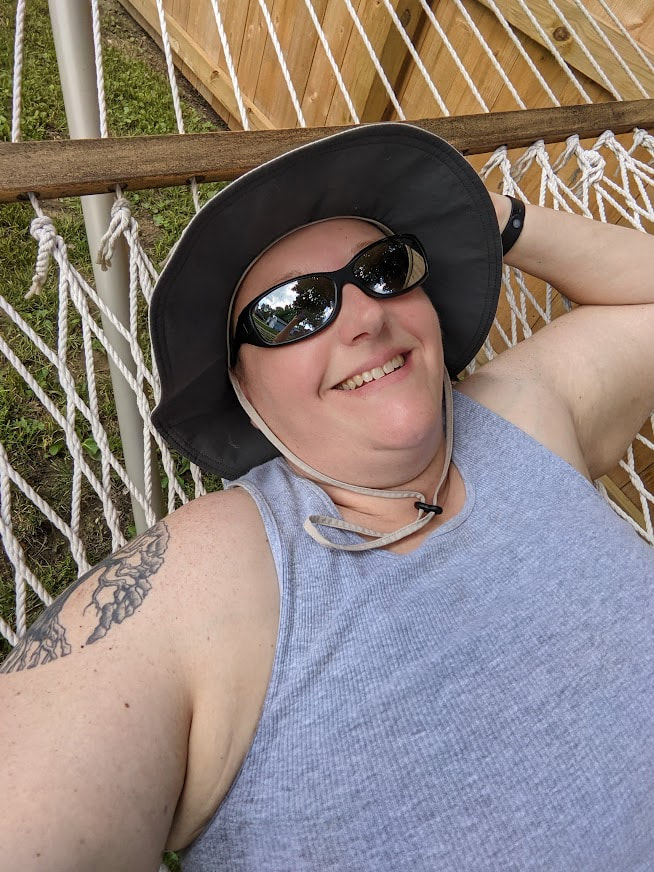|
On Sunday morning I was up around 5AM. After taking care of my dog and popping my contacts in, I went out to move snow. Most of the time I use my snowblower, but on Sunday morning, cloaked in the darkness of early morning, I hated to slice through the quiet with the roar of a machine. So I shoveled our long driveway and our walks.
At the end of July, such a physical feat wasn't at all possible. I was fresh off a meniscus tear in my left knee and just scratching the surface of a new osteoarthritis diagnosis. I couldn't even imagine the back injury that would be caused by the knee injury. I was at the beginning of what would become almost six months of physical therapy and at-home stretching and exercises. In the quiet of this snowy Sunday morning, I reflected on the past six months. How my body moved before the knee injury, what I thought I was capable of before the back injury, and how everything is now. Scoop after scoop, my breath and my heartbeat formed a soft background rhythm for the mantra circling through my head: It is a privilege to be able to move my body. My mantra became my meditation. For an hour-and-a-half, scoop after scoop and heartbeat after heartbeat were all focused on this one thing: It is a privilege to be able to move my body. As I neared the end of shoveling, my low back began to ache just a little, and my left knee throbbed beneath my brace. And still my mantra resounded: It is a privilege to be able to move my body. Before I knew it, I was done with the driveway and the walks. And as I turned my attention toward getting ready for church, I found that my mantra had ceased, and had been turned into something new: Praise and gratitude. Counting my privilege, it seems, hadn't left me feeling low or down or ashamed. I wasn't comparing my truth to another's, or saying, "I should be thankful I can move my body when so many cannot." Counting my privilege was not the end of something, but a beginning. So often we hear about privilege in a negative light. What we don't consider, however, is that privilege--whether White privilege, economic privilege, a privileged health status, or another kind of privilege entirely--is only negative when our awareness of that privilege is absent. When awareness of our privilege is absent, we hold others to standards that we are only comfortable holding ourselves to because of our privileged positions. A lack of awareness leads us to believe that we alone have earned our station in life or society, rather than viewing it as the result of conflating factors, one of which is living in a system that conspires for our benefit, even while it conspires against the benefit of others simultaneously. When we acknowledge our privilege, however, that acknowledgement can turn into praise. It can turn into gratitude. And our gratitude can drive us to work toward transformative justice and the well-being for others. Acknowledging our privilege is the first step in opening our eyes to inequality and inequity, so that we might better use our privilege to help bring about healing and wholeness in ourselves and in our communities. It is a privilege to be able to move my body...and for this privilege, I give thanks through my words and actions that support the liberation of other bodies too. Counting privilege with you, Pr. Melissa Comments are closed.
|
Rev. Melissa Sternhagen
Rev. Melissa Sternhagen was called as the pastor of St. Paul Congregational UCC in June of 2020. Prior to her call to St. Paul, Pr. Melissa worked as a hospice chaplain in the Ames, IA area, following pastorates at rural churches in Central Iowa and Southern Illinois. Pr. Melissa is a second-career pastor with a background in agribusiness and production & supply operations. She received her M.Div. from Eden Theological Seminary in St. Louis, MO, and holds a MA Ed. in Adult Education and Training, and a BA in Organizational Communications. Archives
July 2024
Categories |

 RSS Feed
RSS Feed
